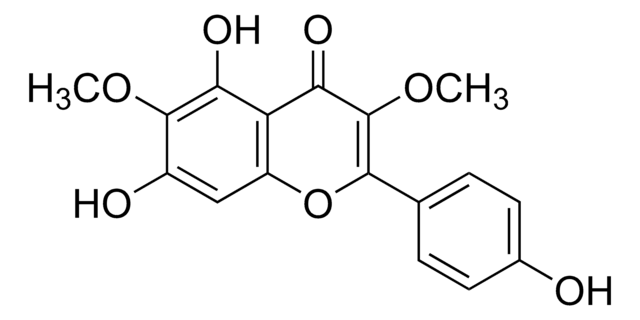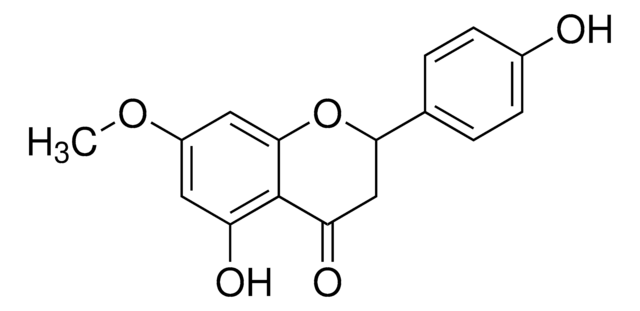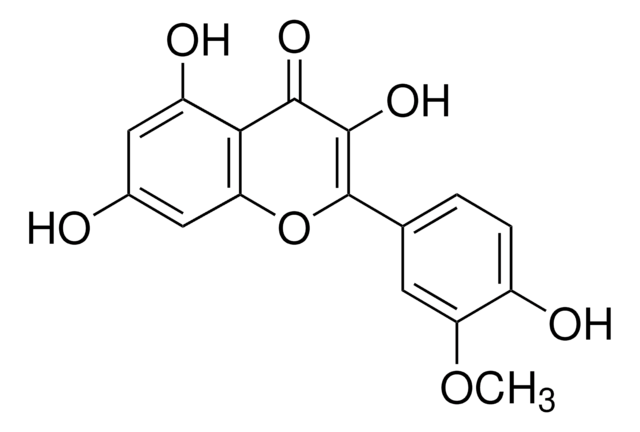90081
3-O-Methylquercetin
≥97% (HPLC)
Synonym(s):
5,7,3′ ,4′ -Tetrahydroxy-3-methoxyflavone, Quercetin 3-O-methyl ether
About This Item
Recommended Products
Quality Level
Assay
≥97% (HPLC)
form
powder
SMILES string
COC1=C(Oc2cc(O)cc(O)c2C1=O)c3ccc(O)c(O)c3
InChI
1S/C16H12O7/c1-22-16-14(21)13-11(20)5-8(17)6-12(13)23-15(16)7-2-3-9(18)10(19)4-7/h2-6,17-20H,1H3
InChI key
WEPBGSIAWZTEJR-UHFFFAOYSA-N
Biochem/physiol Actions
Packaging
Signal Word
Danger
Hazard Statements
Precautionary Statements
Hazard Classifications
Acute Tox. 3 Oral
Storage Class Code
6.1C - Combustible, acute toxic Cat.3 / toxic compounds or compounds which causing chronic effects
WGK
WGK 3
Flash Point(F)
Not applicable
Flash Point(C)
Not applicable
Certificates of Analysis (COA)
Search for Certificates of Analysis (COA) by entering the products Lot/Batch Number. Lot and Batch Numbers can be found on a product’s label following the words ‘Lot’ or ‘Batch’.
Already Own This Product?
Find documentation for the products that you have recently purchased in the Document Library.
Customers Also Viewed
Our team of scientists has experience in all areas of research including Life Science, Material Science, Chemical Synthesis, Chromatography, Analytical and many others.
Contact Technical Service














